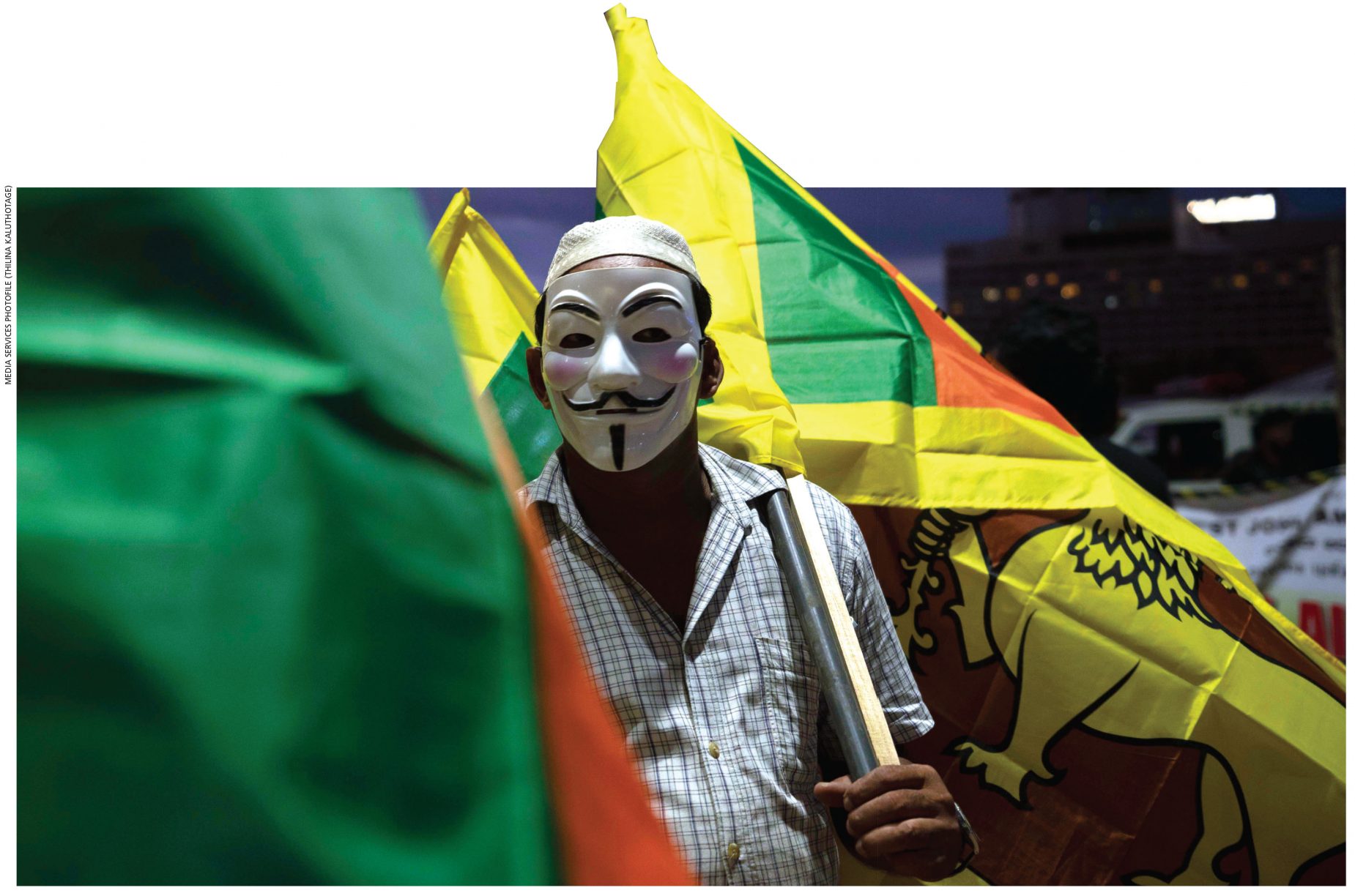STATE OF THE NATION
PAVING THE PATH TO PERDITION IN APATHY
Wijith DeChickera wonders if in the limbo between bankruptcy and blossoming again as a republic, the bloom on the flower may fade
The poet Dante Alighieri – who took millions of readers on a descent into hell in The Inferno – once observed philosophically: “There is no greater sorrow than when in misery to recall happy times.”
It is such a mindset that occupies the waking hours of our island republic’s (one almost wrote ‘erstwhile paradise’s’) more philosophically minded citizens of late, who may be wondering why so many of their fellows remain apathetic to goings-on today – quite as if last year, nothing in the nature of a sociopolitical-economic paradigm shift took place.
And last month, this state of mind was precipitated by recalling the (relative) ‘happiness’ of justifiable, peaceful citizen dissent in July 2022. It stood in the place of a democratic instrument lacking in our commonwealth – right of recall, whereby corrupt or incompetent elected representatives can be ousted midterm – and achieved this through an almost bloodless coup. A few protestors were shot and many heads cracked by thugs et al.
The winter of our discontent, which lasted six months prior to the eviction of arguably the most unpopular and demonstrably incompetent president, could hardly be considered ‘happy times.’
It was only the ouster of a chief executive widely perceived to be the root cause of a nation’s misery – by dint of citizens united as rarely before outside of cricketing arenas – that could characterise it as such.
Although we islanders’ memories are notoriously short and suspect in their recollections, no one in this or the next generation would likely gainsay ‘it was the worst of times’ in living memory in the lead up to that event.
To mention but a few of the nightmares the polity was subject to in that dismal era, a nation on the edge of defaulting on gargantuan debt repayments and the abyss of declared bankruptcy; fiscal and financial instability as never before in city hall; and impending penury for not only the abject poor but also ordinary citizens now held hostage by decades of abys-mal policy making and living beyond national budgetary means on unsustainable borrowings.
Food, fuel and fertiliser crises – in marketplace and town square – where the elderly even died after spending traumatically long days in petrol and diesel queues; and a plethora of protests across the electorate and demographic spectrum, to poke the bear, a.k.a. the state’s apathetic panoply against citizen angst.
The happy result was that a regime, which had been crumbling under the groaning burden of kleptocracy, literally lost its head.
However, the truncated body politic appears to have survived the decapitation in its traditional shape and form – namely an executive and a legislature (government and opposition) seemingly hell-bent on continuing the rape of the republic, while ostensibly undertaking ongoing debt restructuring and a raft of other reforms.
Yes, there are no more shortages of essential goods (though medicines and other ‘luxuries’ as they have become under the new dispensation are too pricey for many to afford).
All the while praising the powers that be and blissfully unaware that the road to hell is gently sloped and paved with good intentions – and no longer asking the hard questions as we did a year ago
And yes, there are abundant supplies of petrol and diesel – save a few rumblings and rumours chronically floated by unscrupulous profiteers to manipulate market sentiments and sales – and increasing fuel quotas pegged to what seems to be a world oil cost sensitive pricing formula.
As well as to drive home a point among the cynics and sceptics, the prospect of notionally newly industrialised nation status by 2048 (a la the president), and altogether pleasant cooperation between friendly countries and multilateral agencies amenable to Sri Lanka’s rapid redevelopment (courtesy the foreign minister’s take in a recent interview on Chinese TV channel CGTN).
Yet, there are no guarantees that the IMF’s Extended Fund Facility (EFF) will go much farther than fixing at least in part the nation’s approach to far more prudent fiscal policy making.
In addition, that Sri Lankans – our politicians in particular and the people in general – have learned the requisite fiduciary lessons to salvage a nation state from more malaises than onetime fiscal bankruptcy.
In fact, if the recent appointment of a Parliamentary Select Committee to investigate the causes of Sri Lanka’s sovereign debt default and subsequent penury is anything to go by – rather than resort to say, the Stolen Assets Recovery (STAR) mechanism, and do the hard yards thereafter – we may well be descending farther into some dreaded future inferno.
All the while praising the powers that be and blissfully unaware that the road to hell is gently sloped and paved with good intentions – and no longer asking the hard questions as we did a year ago…
Is the executive presidency bane or boon?
Can we revisit national reconciliation amid ethno-nationalists stirring the pot again in an organic uprising of bias and bigotry, ahead of a putative conflagration that benefits only opportunistic power hungry politicos?
Must our draconian antiterrorism laws at present be permitted to continue to stifle dissent?
Or have we abdicated citizen power again?






